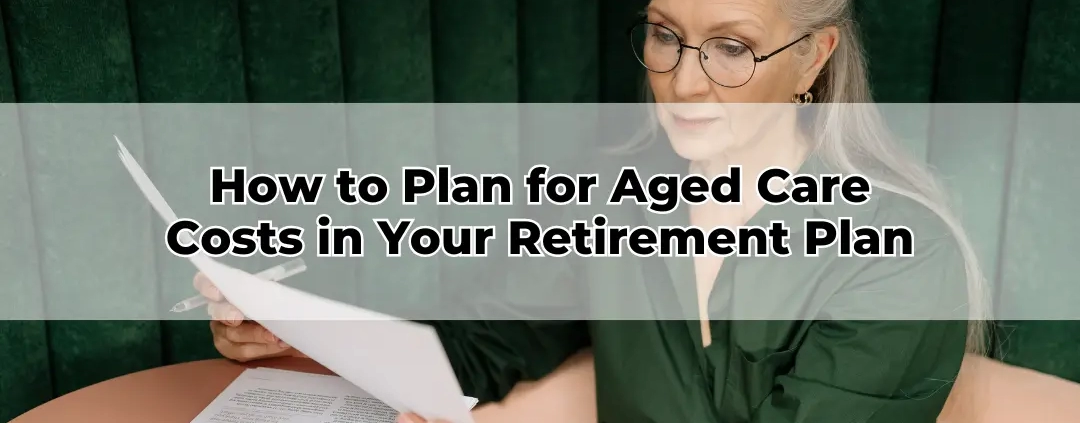How to Plan for Aged Care Costs in Your Retirement Plan
Table of Contents
ToggleAged care costs in Australia can be substantial. Planning ahead ensures financial security and access to quality care without undue stress. The complexity of fees, including accommodation payments, means-testing, and daily care fees, requires careful consideration.
Assessing Your Future Aged Care Needs
While it is difficult to predict the exact level of care you may require, understanding your options is crucial. Residential aged care, home care packages, and assisted living all come with different financial obligations. Planning based on potential needs prevents financial strain in later years.
Government Support and Aged Care Subsidies
The Australian Government provides financial assistance through the Aged Care Funding Instrument (ACFI) and Home Care Packages (HCP). However, eligibility is means-tested, and there may still be out-of-pocket expenses. Understanding these subsidies helps optimise financial outcomes.
The Role of Superannuation in Aged Care Planning
Superannuation is a key funding source for aged care expenses. Ensuring adequate savings within your super fund can alleviate financial pressure. Strategies such as making additional contributions and adjusting investment allocations can enhance retirement security.
The Impact of the Means-Tested Care Fee
The means-tested care fee is a significant component of aged care costs. It is determined by assessing income and assets. Strategies such as restructuring assets or gifting may influence the amount payable, but professional guidance is essential to ensure compliance with regulations.
Selling the Family Home: Pros and Cons
For many retirees, the family home is their largest asset. Selling it to fund aged care may be necessary, but it can also impact pension eligibility and means-tested care fees. Exploring alternatives such as renting or home equity release schemes may be beneficial.
The Role of Annuities and Pensions in Covering Costs
Annuities and pensions provide predictable income streams that can help manage aged care costs. Understanding the various options, including lifetime annuities and account-based pensions, allows for informed financial decisions.
Estate Planning Considerations in Aged Care
Ensuring that aged care costs do not erode family wealth requires robust estate planning. Strategies such as testamentary trusts and structured gifting can protect assets while ensuring financial flexibility for aged care needs.
Tax Implications of Aged Care Payments
Various tax considerations impact aged care funding, including capital gains tax on property sales and tax treatment of superannuation withdrawals. Engaging with a financial adviser can help optimise tax outcomes.
The Importance of Financial Advice in Aged Care Planning
Navigating aged care costs is complex. Seeking expert advice ensures that all aspects—government support, superannuation, tax implications, and estate planning—are considered for a comprehensive financial strategy.
Preparing for Unexpected Costs
Health deterioration or changes in government policies can lead to unexpected aged care expenses. Maintaining a contingency fund and regularly reviewing financial plans helps mitigate financial risks.
Reviewing Your Retirement Plan Regularly
Retirement and aged care planning should be dynamic. Regular reviews of investments, superannuation, and estate plans ensure financial preparedness for evolving circumstances.
Planning for aged care costs as part of your retirement strategy ensures financial stability and peace of mind. Engaging with a financial adviser helps tailor a plan that aligns with personal goals and maximises available resources.









